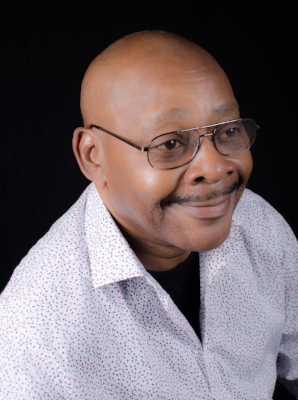Willie James King
Willie James King was born and reared in Orrville, Alabama. He has published several books including The House in the Heart (2007) and Autumn’s Only Blood (2013), both from Tebot Bach Press. His poems have appeared widely in such publications as America, Appalachian Heritage, Confrontation, Cutthroat, A Journal of the Arts, New Contrast (South Africa), English Journal, Rattle, Southern Poetry Review, and Urthona (UK). He has nine Pushcart Prize nominations and one Best of the Net. He resides in Montgomery, Alabama.
Silver Concho Poetry Series edited by Pamela Uschuk and William Pitt Root
ISBN 978-1-941209-95-0
9 x 6 softcover, 74 pages
Praise for To Be the Difference
“It is difficult / to get the news from poems…” Dr. Williams diagnosed, but here it is, fresh and definitive, the complete treatment given by the splendid physician, Willie James King, in his precise prescriptive poems of To Be the Difference. This bare-boned, scalpel-edged verse reverses and heals the mad maladies of our time. Post post-traumatic traumas, after after-action reports, these incisive tattoos serve as pristine telegraphy where every word counts, at least, four times four times, counts backwards and forward, counts cardinal and prime. These are not poems so much as exact and exacting “worries,” honed and homed in on our elemental dreads and our exacting joys. Extra! Extra! Yes, yes! Read all about this ultimate it!
—Michael Martone, author of Michael Martone and Brooding
Musical, passionate, and compassionate, without any airs or mask, Willie James King speaks, in To Be the Difference, of hues and tones in Nature—“I thought the tomato was red / until I placed a pod of pepper / beside it”— and in the differences and likenesses between human beings, as in the individual variations in “a myriad of black faces.” His poems range from free-verse epigrams to sonnets, and while King declares his allegiance with African-American thinkers in each section of this urgent, intensely observant book, he is embracing the world at large. Above all, he is a poet of engagement, in terms of politics, nature, and human interactions, “You know how sometimes our bodies aren’t ours, / how they can belong to a grieving breeze / or mornings when it is too brisk.”
—LaWanda Walters, author of Light Is the Odalisque
Willie James King's remarkable poems take us on a trip through time: back to Selma, to the Confederate flag on a capitol dome, to “four-hundred years of slavery” that “exists now, if you are attentive,” to grass that grows back, to a time “when there was a Trump behind / every hedge, tree ready to lop / off the limb of an attempted escapee,” and forward to “a small sunken city / still divided / where people, dazed, pass in and out,” to the unwritten future, to nature and the possibility of a magenta sunset. The poems celebrate the courage of loved ones and petition for human rights not yet fully realized and still at risk. King's words are always hopeful and outlined with wisdom, clarity, and light.
—Beth Copeland, author of Blue Honey, winner of the 2017 Dogfish Head Poetry Prize

